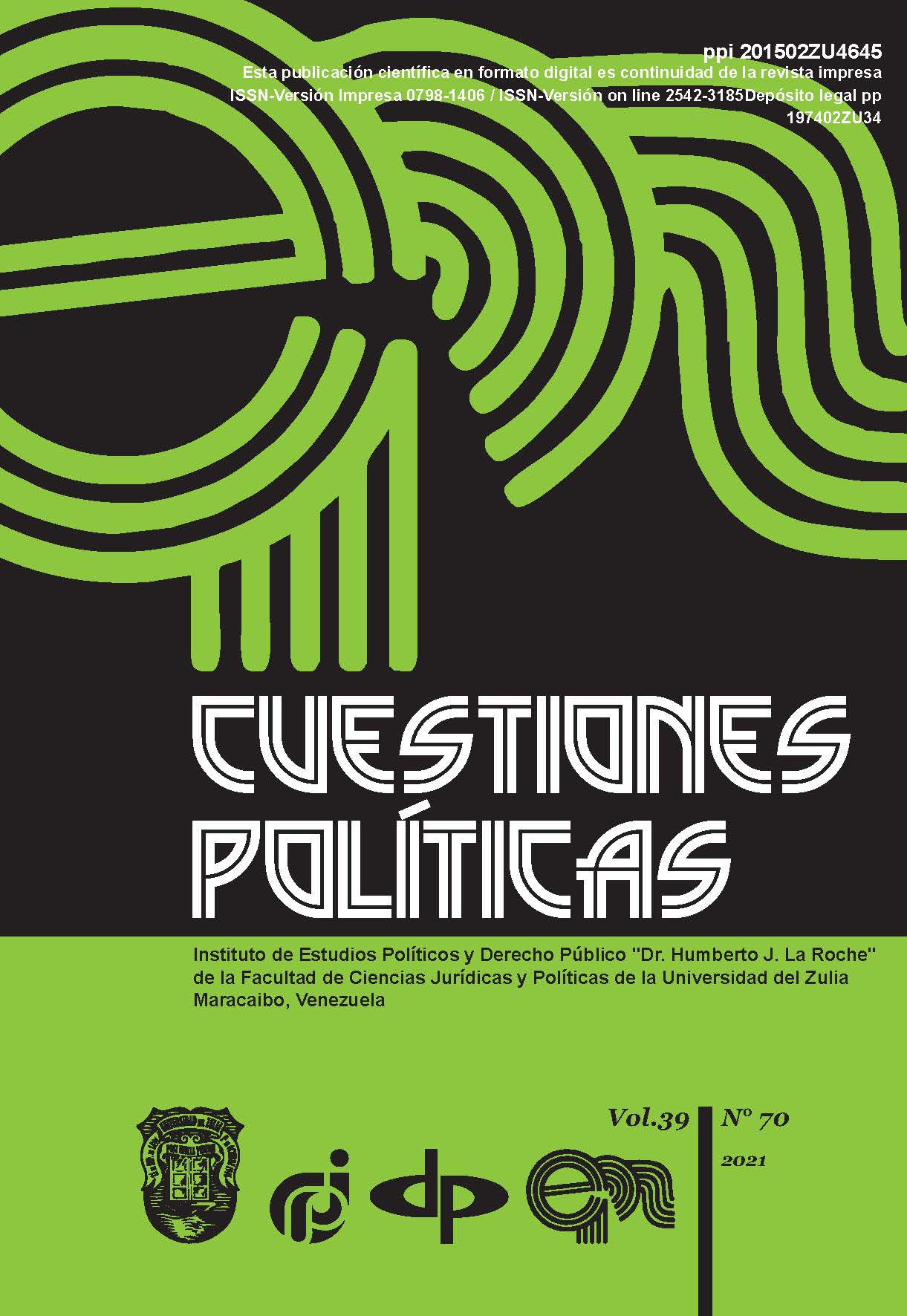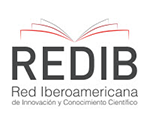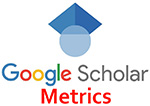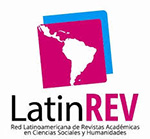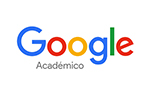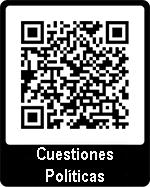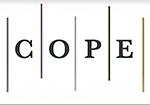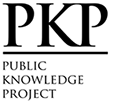Linguistic approaches and modern communication technologies in political discourses in Europe and the USA (contrastive aspect)
Abstract
In this study, we analyze the political discourse of the United States and Europe in terms of linguistic approaches. Among the methods we use are systemic, structural, functional, content analysis, discourse analysis and thesaurus method. Its application took place within the theory of discourse. The study found that the main difference between the political discourses of Europe and the United States are the forms and means of communication, the formats of their distribution and the massive indicators of inclusion of the population (recipient of political discourse) in the communicative interaction. The difference is also the centralization and the levels at which the discourse develops. For example, the focus of political rhetoric on the institution of the U.S. presidency makes the presidential speech a reflection of public opinion. This is not typical of European countries, as pluralism of opinion is widespread there, communication takes place at local, regional, national, and supranational level. In addition, the European identity is in the process of being deeded. However, both discourses have in common the commitment to the values of democracy, but they manifest themselves differently.
Downloads
References
ANANKO, Tetiana. 2021. “Persuasion strategies in Joe Biden’s political discourse” In: Bulletin of the KNLU. Series: Philology. Vol 24, No. 1, pp. 9-15. Available online. In: http://philmessenger.knlu.edu.ua/article/ view/235921. Date of consultation: 14/08/2020.
ARBELÁEZ-CAMPILLO, Diego; TATSIY Vasyl; ROJAS-BAHAMÓN, Magda; DANILYAN, Oleg. 2020. “Contributions of Critical Thinking as a Form of Participation and Political Deliberation” In: Amazonia Investiga. Vol. 9, No. 27, pp. 5-12. Available online. In: https://doi.org/10.34069/ AI/2020.27.03.1. Date of consultation: 14/08/2020.
ARUTYUNOVA, Nataliia. 1990. Discourse. In Linguistic Encyclopedic Dictionary. Soviet Encyclopedia. Moscow, Russia.
AVERINTSEV, Serhii. 1996. Rhetoric and origins of the European literary tradition. Moscow: Languages of Russian culture. Available online. In: http://predanie.clients-dnnow.ru/uploads/ftp/averincev-sergey-ser/ritorika-i-istoki-evropeyskoy-literaturnoy-tradi/ritorika-i-istoki- ievropieiskoi-litierat-avierintsiev.pdf. Date of consultation: 14/08/2020.
BENVENISTE, Emile. 1966. “Problèmes de linguistique générale” In: Les Etudes Philosophiques. Vol 21, No. 3, pp. 105-107. Available online. In: https://www.persee.fr/doc/lfr_0023-8368_1969_num_1_1_5409. Date of consultation: 14/08/2020.
BENVENISTE, Emile. 1971. “Subjectivity in language. Problems in general linguistics” In: Journal de psychologie. No. 1, pp. 223-230. Available online. In: https://edisciplinas.usp.br/pluginfile.php/294097/ mod_resource/content/1/Benveniste%20(1).pdf. Date of consultation: 14/10/2020.
BERGER, Peter L; LUCKMANN, Thomas. 1967. The social construction of reality. Anchor Books. London. Available online. In: http://www. perflensburg.se/Berger%20social-construction-of-reality.pdf. Date of consultation: 14/10/2020.
BIDEN, Joseph. 2021. Inaugural Address by President Joseph R. Biden, Jr. The White House. Available online. In: https://www.whitehouse.gov/ briefing-room/speeches-remarks/2021/01/20/inaugural-address-by- president-joseph-r-biden-jr/. Date of consultation: 14/02/2021.
BOUVIER, Gwen. 2015. “What is a discourse approach to Twitter, Facebook, YouTube and other social media: connecting with other academic fields?” In: Journal of Multicultural Discourses. Vol 10, No. 2, pp. 149- 162. Available online. In: Doi: 10.1080/17447143.2015.1042381. Date of consultation: 14/02/2021.
DREHER, Jochen. 2016. “The social construction of power: Reflections beyond Berger/Luckmann and Bourdieu” In: Cultural Sociology. Vol 10. No. 1, pp. 53-68. Available online. In: http://kops.uni-konstanz.de/bitstream/handle/123456789/32550/Dreher_0-316434.pdf?sequence=1&isAllowed=n. Date of consultation: 14/02/2021.
ENLI,GunSara;SKOGERBØ,Eli.2013.“Personalizedcampaignsinparty-centred politics: Twitter and Facebook as arenas for political communication” In: Information, Communication & Society. Vol 16, No. 5, pp. 757-774. Available online. In: https://doi.org/10.1080/1369118X.2013.782330. Date of consultation: 14/02/2021.
FAIRCLOUGH, Norman. 1995. Critical discourse analysis. Longman. London. Available online. In: https://www.felsemiotica.com/descargas/ Fairclough-Norman-Critical-Discourse-Analysis.-The-Critical-Study-of- Language.pdf. Date of consultation: 14/02/2021.
FOMENKO, Olena Stepanovna. 1998. Linguistic analysis of modern US political discourse (90s of XX century). Doctoral thesis. Taras Shevchenko National University of Kyiv. Kyiv. Available online. In: http://library. nuft.edu.ua/ebook/file/10.02.04fomenkoS.pdf. Date of consultation: 10/02/2020.
HWANG, Sungwook. 2013. “The effect of Twitter uses on politicians’ credibility and attitudes toward politicians” In: Journal of Public Relations Research. Vol 25, No. 3, pp. 246-258. Available online. In: https://www. tandfonline.com/doi/abs/10.1080/1062726X.2013.788445. Date of consultation: 10/02/2020.
KASIYAN, Anna Vadimivna. 2014. Speech etiquette in modern French socio- political discourse: linguocognitive and communicative-pragmatic aspects. Doctoral thesis. Kyiv National Linguistic University. Kyiv. Available online. In: http://www.disslib.org/movlennyevyi-etyket- u-suchasnomu-frantsuzkomu-suspilno-politychnomu-dyskursi.html. Date of consultation: 10/02/2020.
KONDRATENKO, Natalia. 2007. Ukrainian political discourse: textualization of reality. Black Sea. Odessa. Available online. In: https://www.twirpx. com/file/2052919/. Date of consultation: 10/02/2020.
KOVALEVA, Olena. 2020. “Political discourse: modern linguistic interpretations” In: Current issues of the humanities. Vol 27, No. 2, pp. 101-107. Available online. In: http://www.aphn-journal.in.ua/ archive/27_2020/part_2/16.pdf. Date of consultation: 10/02/2020.
KRUIKEMEIER, Sanne. 2014. How political candidates use Twitter and the impact on votes. In: Computers in Human Behavior. Vol 34, pp. 131-139. Available online. In: https://doi.org/10.1016/j.chb.2014.01.025. Date of consultation: 10/02/2020.
KRYVYI, Anatolii. 2001. Discourse analysis and modern linguistics. In the Discourse of Foreign Language Communication. LNU named after I. Franko. Lviv, Ukraine.
LECONTE, Cécile. 2010. Understanding euroscepticism. Red Globe Press. Macmillan. Available online. In: https://www.macmillanihe.com/page/ detail/Understanding-Euroscepticism/?K=9780230228078. Date of consultation: 10/12/2020.
MASALOVA, Maria. 2021. “Rhetorical persuasive strategies in Joe Biden’s inaugural address: A critical discourse analysis” In: The Scientific Heritage. Vol 67, No. 4, pp. 65-70.
MASLOVA, Valentina A. 2008. Cognitive linguistics. Minsk: Tetra Systems. Available online. In: https://platona.net/load/knigi_ po_filosofii/kognitivnye_nauki/maslova_v_a_kognitivnaja_ lingvistika_2008/17-1-0-1466. Date of consultation: 10/12/2020.
MASROOR, Farzana; KHAN, Qintarah. N; AIB, Iman; ALI, Zulfiqar. 2019. “Polarization and ideological weaving in Twitter discourse of politicians” In: Social media + Society. Vol 5, No. 4, pp. 1-4. Available online. In: https://journals.sagepub.com/doi/pdf/. Date of consultation: 10/12/2020.
MORRIS, Stephen. 2001. Political correctness. In: Journal of Political Economy. Vol 109, No. 2, pp. 231-265. Available online. In: https://www.haverford.edu/sites/default/files/Morris2001.pdf. Date of consultation:10/12/2020.
MUSOLFF, Andreas. 2004. Metaphor and political discourse. Analogical Reasoning in Debates about Europe. London: Palgrave Macmillan. Available online. In: https://www.palgrave.com/gp/ book/9781403933898. Date of consultation: 14/09/2020.
OZADOVSKA, Liydmyla. 2004. “Language in the context of dialogue” In: Philosophical Thought. No. 3, pp. 22-50.
PAVLUTSKA, Vladyslava. 2008. “Political discourse: features and functions” In: Bulletin of ZhSU named after I. Franko. No. 39, pp. 218-221. Available online. In: http://eprints.zu.edu.ua/2446/1/218-221.pdf. Date of consultation: 14/09/2020.
PROCTOR, Katarzyna; I-WENSU1, Lily. 2011. “The 1st person plural in political discourse – American politicians in interviews and in a debate” In: Journal of Pragmatics. Vol 43, No. 13, pp. 3251-3266. Available online. In: Doi: 10.1016/j.pragma.2011.06.010. Date of consultation: 14/09/2020.
PROTSENKO, Vitaly. November 11, 2018. “Anthology of populism: the real cause of people’s love and an effective weapon against Ukrainian populists” In: Voxukraine. Available online. In: https://voxukraine.org/ longreads/populism/index.html. Date of consultation: 14/09/2020.
RAHAYU, Ni Luh Putri; SUASTINI, Ni Wayan; JAYANTINI, I Gusti Agung Sri Rwa. 2021. “Political Discourse Structure on Joe Biden’s Acceptance Speech” In: International Journal of English Learning and Applied Linguistics. Vol 1, No. 2, pp. 69-87.
REYES, Antonio. 2011. “Strategies of legitimization in political discourse: From words to actions” In: Discourse & Society. Vol 22, No. 6, pp. 781-807. Available online. In: https://citeseerx.ist.psu.edu/ viewdoc/download?doi=10.1.1.861.2997&rep=rep1&type=pdf. Date of consultation: 14/09/2020.
SARANI, Saeid; DEHSHIRI, Mohammad. 2019. “A Comparative Discourse Analysis of the American Dream and the China Dream” In: Amazonia Investiga. No. 8, Vol. 23, pp. 12-22. Available online. In: https:// amazoniainvestiga.info/index.php/amazonia/article/view/855. Date of consultation: 14/09/2020.
SCHNEIKER, Andrea. 2019. “Telling the story of the superhero and the anti- politician as president: Donald Trump’s branding on Twitter” In: Political Studies Review. Vol 17, No. 3, pp. 210-223. Available online. In: https:// doi.org/10.1177/1478929918807712. Date of consultation: 14/09/2020.
SERAZHIM, Kateryna. 2002. Discourse as a sociolinguistic phenomenon: methodology, architectonics, variability. Kyiv: Taras Shevchenko National University of Kyiv. ISBN 966 -594-180-1. Available online. In: https://www.twirpx.com/file/242668/. Date of consultation: 14/09/2020.
SHARAPANOVSKA, Yuliia. 2016. “Theoretical foundations of political discourse analysis” In: Young Scholar. Vol. 4, No. 31, pp. 428-431.
SHCHOLOKOVA, Anna Vladimirovna. 2014. Features of the EU political discourse. Available online. In: https://bit.ly/3jCDuxe. Date of consultation: 14/07/2020.
SHEIGAL, Elena Iosifovna. 2000. “Semiotics of political discourse” In: Volgograd: Premena. Available online. In: https://cyberleninka.ru/ article/n/2001-02-010-sheygal-e-i-semiotika-politicheskogo-diskursa- in-t-yazykoznaniya-ran-volgogr-gos-ped-un-t-volgograd-peremena- 2000-368-s-bibliogr-s. Date of consultation: 14/07/2020.
SHEIGAL, Elena Iosifovna. 2004. Semiotics of political discourse. Gnosis.Moscow, Russia.
SIREGAR, Try. 2021. “The critical discourse analysis on Joe Biden’s elected president speech” In: Journal of Applied Studies in Language. Vol 5, No. 1, pp. 79-86. Available online. In: http://ojs.pnb.ac.id/index.php/JASL/ article/download/2298/1747/. Date of consultation: 14/05/2021.
SLAVOVA, Liydmyla. 2012. Linguistic personality of the leader in the mirror of political linguistic personology: USA – Ukraine. Zhytomyr: ZhSU named after I. Franko. Kiev, Ukraine.
SMOLYAKOV, Vladimir Alexandrovich. 2010. “Political dimension of economic integration (comparison of European and East Asian models)” In: Bulletin of KSAEP. Vol 3, No. 48, pp. 23-35. Available online. In: https:// cyberleninka.ru/article/n/politicheskoe-izmerenie-ekonomicheskoy- integratsii-sravnenie-evropeyskoy-i-vostochnoaziatskoy-modeley. Date of consultation: 14/05/2021.
STREZHNEVA, Marina Vadimovna. 2005. “Integration and engagement as tools for global governance” In: International Processes. Vol 3, No. 1, pp. 17-28. Available online. In: https://mgimo.ru/library/ publications/113529/. Date of consultation: 14/05/2020.
VAN DIJK, Teun, A. 1993. “Principles of critical discourse analysis” In: Discourse & Society. Vol 4, No. 2, pp. 249-283. Available online. In: https://doi.or g/10.1177/0957926593004002006. Date of consultation: 14/05/2020.
VAN DIJK, Teun, A. 1997. “What is political discourse analysis?” In: Belgian Journal of Linguistics. Vol 11, No. 1, pp. 11-52. Available online. In: https://doi.org/10.1075/bjl.11.03dij. Date of consultation: 14/05/2020.
VAN DIJK, Teun, A. 1998. “Ideology: A multidisciplinary approach” In: SAGE. Available online. In: https://sk.sagepub.com/books/ideology. Date of consultation: 14/05/2020.
VAN DIJK, Teun, A. 2006a. “Discourse and manipulation” In: Discourse & Society. Vol 17, No. 2, pp. 359-383.
VAN DIJK, Teun. A. 2006b. “Politics, ideology, and discourse. In Encyclopedia of Language & Linguistics” In: Elsevier. Available online. In: https:// doi.org/10.1016/B0-08-044854-2/00722-7. Date of consultation: 14/05/2020.
VASHCHUK, Tetiana. 2007. “Political discourse as an object of linguistic research” In: Bulletin of ZhSU named after I. Franko. No. 33, pp. 182- 185.
Copyright
The authors who publish in this journal agree to the following terms:
The authors retain the copyright and guarantee the journal the right to be the first publication where the article is presented, which is published under a Creative Commons Attribution License, which allows others to share the work prior to the recognition of the authorship of the article work and initial publication in this journal.
Authors may separately establish additional agreements for the non-exclusive distribution of the version of the work published in the journal (for example, placing it in an institutional repository or publishing it in a book), with an acknowledgment of its initial publication in this journal.
This work is under license:
Creative Commons Reconocimiento-NoComercial-CompartirIgual 4.0 Internacional (CC BY-NC-SA 4.0)


